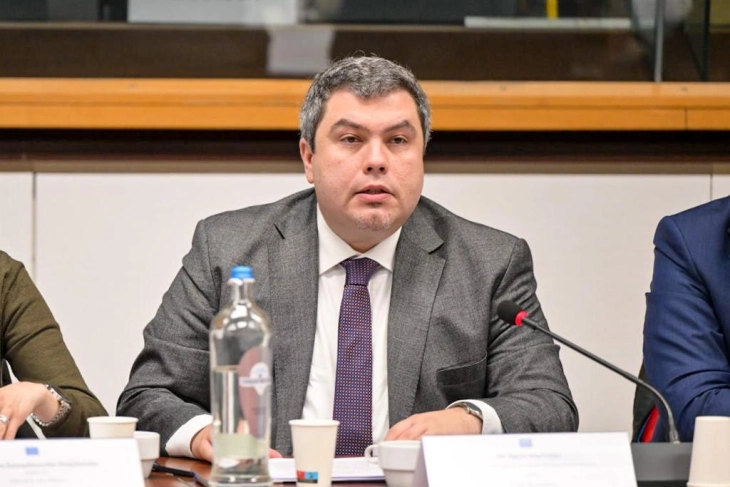Marichikj: Providing good education essential for developing country's economy
- Education and culture are essential for the prosperity of Macedonian citizens, supported by the steady and inclusive economic growth of the country, according to Deputy Prime Minister for European Affairs and chief negotiator with the EU Bojan Marichikj at Tuesday's bilateral screening meeting on Chapter 26: Education and Culture in Brussels.
- Post By Magdalena Reed
- 19:17, 30 May, 2023

Skopje, 30 May 2023 (MIA) — Education and culture are essential for the prosperity of Macedonian citizens, supported by the steady and inclusive economic growth of the country, according to Deputy Prime Minister for European Affairs and chief negotiator with the EU Bojan Marichikj at Tuesday's bilateral screening meeting on Chapter 26: Education and Culture in Brussels.
"Human capital is the main resource for the development of the Macedonian economy, following the example of the EU's developed economies, and its quality depends on the offer of appropriate education and training," Deputy PM Marichikj said. He added this was the reason the state would continue aligning its policies with the EU's recommendations and strengthening administrative capacities.
Presenting key reforms related to the Education and Culture chapter, Marichikj said a new law was being drafted for secondary education, according to which 20 percent of the curricula should be taught through digital content and technology.
He also said the Ministry of Education and Science's proposed new Law on Secondary Education would have provisions regarding inclusive education, democratic participation of students, the work of regional centers for vocational education and training as well as environmental sustainability.

"As of the 2023–24 school year, former special schools will no longer enroll students with special educational needs, which shows we have succeeded in fully including students with special educational needs into elementary schools and further education," he said, adding that the government was also preparing a National Strategy for the Rights of Persons with Disabilities 2023–2030.
The chief negotiator with the EU pointed out that North Macedonia was actively participating in the European education programs Erasmus+ and the European Solidarity Corps. More than 35,000 participants so far have improved their skills and shared experiences through Erasmus+ projects, he said, noting that the state was also finalizing its National Youth Strategy in line with EU methodology and in continuous dialogue with relevant stakeholders.
Regarding cultural policies, Marichikj said the country implemented and funded cultural programs and projects while aligning priorities with the European Agenda for Culture. He highlighted that North Macedonia was one of the first countries in the region to have signed up to participate in the EU Creative Europe program.
Tuesday's presentations to the European Commission representatives focused on the overview of laws, level of compliance, institutions, and future plans in the areas of primary, secondary and higher education, access to education and equal treatment, vocational education and training, participation in EU programs, youth and sports policies, and culture.
The bilateral screening meeting in Brussels was also attended by Culture Minister Bisera Kostadinovska Stojchevska and Minister of Education and Science Jeton Shaqiri. mr/







